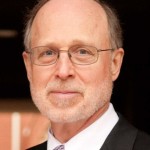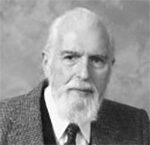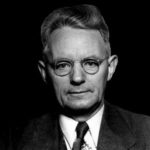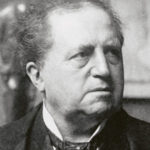 Has the Christian Right morphed into an American version of the Taliban? Are these folks trying to transform America into a fundamentalist theocracy? Don’t they talk about making the Bible the law of the land? Don’t they speak of “taking dominion” in Christ’s name? Doesn’t that sound exactly like the Taliban (or even ISIS)?
Has the Christian Right morphed into an American version of the Taliban? Are these folks trying to transform America into a fundamentalist theocracy? Don’t they talk about making the Bible the law of the land? Don’t they speak of “taking dominion” in Christ’s name? Doesn’t that sound exactly like the Taliban (or even ISIS)?
Chris Hedges, a liberal journalist with a solid grasp of conservative evangelicalism, exemplified the frantic tone critics of “dominionism” usually project when he summarized the goals of the movement:
“This ideology . . . calls for the eradication of social ‘deviants,’ beginning with gay men and lesbians, whose sexual orientation, those in the movement say, is a curse and an illness, contaminating the American family and the country.”
But the LGBT community isn’t the only target of this American Taliban, Hedges says.
“Once these ‘deviants’ are removed, other ‘deviants’, including Muslims, liberals, feminists, intellectuals, left-wing activists, undocumented workers, poor African Americans and those dismissed as ‘nominal Christians’ — meaning Christians who do not embrace this peculiar interpretation of the Bible — will also be ruthlessly repressed. The ‘deviant’ government bureaucrats, the ‘deviant’ media, the ‘deviant’ schools and the ‘deviant’ churches, all agents of Satan, will be crushed or radically reformed. The rights of these ‘deviants’ will be annulled. ‘Christian values’ and ‘family values’ will, in the new state, be propagated by all institutions. Education and social welfare will be handed over to the church. Facts and self-criticism will be replaced with relentless indoctrination.”
Is Hedges right? Are politicians associated with the religious right, folks like Ted Cruz for example, really intent on instituting a Christian version of Taliban theocracy?
There are certainly plenty of people associated with the religious right who dream of a Christian aristocracy liberated from intellectual, political and religious diversity. But scary soundbites from the fringes can create a simplistic and misleading impression. The original version of Hedges’ “dominionist” column, for example, contained a quote from Ted Cruz that had been culled from a parody site. Cruz is too smart to expose his most controversial convictions in a public forum.
So, how widespread is this “deviant-annulling” ideology Hedges wants us to fear?
Not very. That’s the good news.
The bad news is that a watered-down version of Christian theocracy (let’s call it dominion-lite) is influencing wide swaths of American religious and political conservatism.
You can’t understand American “Dominionism” without grappling with two subjects that fill most of us with a mixture of dread and boredom: history and philosophy. If you want your worst fears about religious conservatives confirmed, stick with Hedges and his friends on the religious left. But if you are up for a more nuanced take I challenge you to read on (I will make this as quick and painless as possible, I promise).
American dominionism began with Rousas John Rushdoony, the son of a European immigrant who lost most of his family in the Turkish slaughter of Armenian Christians during World War I. Few of us are familiar with Rushdoony (or “Rush” as he is known to his fans), but without him American religious conservatism would be an entirely different animal.
If this cursory discussion of Rushdoony’s life and thought leaves you craving more, two recent books will fill in the blanks: Julie Ingersoll’s Building God’s Kingdom: Inside the World of Christian Reconstruction, and Michael J. McVicar’s Christian Reconstruction: R.J. Rushdoony and American Religious Conservatism. McVicar is best on the genesis of Rushdoony’s theology; Ingersoll provides on his abiding influence, especially within the Tea Party movement.
Possibly because Rushdoony grew up in a Christian family that was almost wiped out in a religious ethnic purge, he saw the struggle between Orthodox Christianity and the forces of secularity in stark, zero-sum terms. Either Christians would silence the modern world or the modern world would silence Christians.
As McVicar’s research demonstrates, Rushdoony was an odd mixture. He was a Christian Libertarian who hung out with the racist conspiracy theorists in the John Birch Society and other fringe organizations. He was too religious for either the “Birchers” (as they were known back in the day) or Austrian School economists like Ludwig Von Mises and F.A. Hayek. He feuded publicly with the mainstream evangelical world represented by Christianity Today.
Rushdoony was a rigid ideologue who refused to participate in big-tent alliances or settle for half a loaf. This explains why few have heard of the man and why, his obscurity notwithstanding, his all-or-nothing worldview is an abiding influence. Rushdoony gave American conservatism a theology, a philosophy and a long-term strategy. He didn’t give a damn who disagreed with him because he was speaking for the Sovereign God of the Bible.
From his earliest days, Rushdoony was uncomfortable with public education and centralized government, but he wasn’t sure why until he encountered Cornelius Van Til, a Dutch Reformed theologian who, along with the irascible J. Gresham Machen, had abandoned Princeton Theological Seminary to found Westminster Theological Seminary in 1929.
Prior to Van Til, conservative theologians in Great Britain and the United States subscribed to what scholars call Scottish Common Sense Realism. Because the truth about God and the world was directly observable, and any honest person who examined the extant evidence would draw orthodox Christian conclusions. It didn’t matter whether you were reading the Bible or studying yellow-billed finches, the truth was there for the taking.
This emphasis on common sense and the direct apprehension of reality placed conservative theologians in a tough spot when highly respected theologians, biologists and astronomers revealed glaring factual errors in the pages of holy writ. Common sense seemed to favor the skeptical “modernists” and, apart from sheer dogmatic assertion, conservative theologians were fumbling around for a convincing response.
Growing up in Holland, Cornelius Van Til was deeply influenced by the Dutch Reformed Philosopher (and former Dutch Prime Minister) Abraham Kuyper. The presuppositions we bring to the table determine the conclusions we draw, Kuyper argued. Since the Triune God is sovereign over all things (including the Bible, science and philosophy), intellectual inquiry must begin with faith in God. There is an “antithesis,” Kuyper believed, between the worldview of the Reformed Christian and the worldview of the Enlightenment.
Because he was intellectually and temperamentally opposed to the creation of a Dutch theocracy, Kuyper devised the idea of “sphere sovereignty.” The church, the family, the state and the secular academy all inhabit different spheres, and so long as the inhabitants of each sphere respect the rights and the wisdom of others, civil society will survive and prosper. With this in mind, Kuyper created the Free University of Amsterdam in 1880 as a dedicated sphere for academic inquiry shaped by the Dutch Reformed worldview.
Although he opposed the theory of evolution and warned Dutch Reformed Christians to have nothing to do with it, Kuyper didn’t want to silence free inquiry. Non-Christians, though aliens to the special grace that comes with faith in Christ, were recipients of a “common grace” that allowed them to create, discover and contribute to the greater good.
In America, Cornelius Van Til incorporated Kuyper’s understanding of “the antithesis” into his theology, but with a fateful twist. Because God was Sovereign over all creation, the truth was inaccessible if God was left out of the story. The “modernists” weren’t just wrong; they were dangerous nihilists shaking their fists in the face of Almighty God. Everything they touched turned to dust and ash. A logical process that begins with non-Christian presuppositions, Van Til taught, will inevitably lead to erroneous, destructive and evil conclusions.
R. J. Rushdoony used Van Til’s “presuppositionalism” as a foundation for his own thought, but he took it a step further. Van Til was an effective demolition expert, but he wasn’t much of a builder. Rushdoony wanted to know, in precise detail, what the world would look like if Orthodox Christian presuppositions were followed to their logical conclusion.
American fundamentalists and conservative evangelicals went wrong, Rushdoony said, when they withdrew from the public arena and placed their focus on conversion and personal piety. As a strict Calvinist, Rushdoony saw conversion as a work of God in which human choice was irrelevant. Rushdoony wanted to show the remnant of humanity God had elected for salvation how to “reconstruct” their personal lives, their families and, ultimately, the whole of society.
Rushdoony’s theology began with the idea of “theonomy” or God-law. He rejected the traditional distinction between a covenant of law revealed to Moses and a covenant of grace revealed in Jesus. For Rushdoony, the Law of Moses and the law of Christ were entirely compatible. He made this work by viewing the New Testament through an Old Testament lens. Since God has existed eternally as Father, Son and Holy Spirit, Moses received the law from Jesus as well as God. Therefore, if the Old Testament spoke of conquest, holy war and slavery for the infidel, Jesus, by definition, had to be on board.
Unlike the vast majority of American fundamentalists and evangelicals, Rushdoony rejected dispensational premillennialism in favor of Reformed postmillennialism. Christ would not return until his people had taken dominion of the world and orthodox Reformed Christians controlled the public sphere.
Calling on Kuyper’s idea of sphere sovereignty, Rushdoony taught that the only role for the state was to protect the populace from external threat and to punish those guilty of breaking the law. These three abide, state, church and family, and the greatest of these is family.
Rushdoony’s theology was unapologetically patriarchal. Just as Adam took dominion over the birds of the air and the beasts of the field before Eve was created as a help-meet, so the male of the species stood at the heart of God’s plan for reconstruction. Women could play a role in taking dominion, but only by working in partnership with a Christian husband.
First the “dominion man” must reconstruct himself in accord with God’s law (theonomy) revealed in the Bible. Next the family organized around its patriarchal head must be reconstructed. Finally, with the earth brimming with reconstructed families a tipping point will be reached, the Sovereign God will have achieved effective dominion and Christ will return to reign in glory.
In other words, Rushdoony wasn’t in a hurry. The process of reconstruction might take a hundred generations; but it would happen because a Sovereign God had willed it. And when that great day arrives, Rushdoony promised his followers, the law of God revealed in scripture would be fully operational.
Full-blown dominionism can be downright scary. Even Rushdoony, the father of this harsh vision, confessed to being uncomfortable with some of the conclusions God’s perfect Word drove him to. Those who refused to yield to the dominion of Christ would be enslaved or executed in accordance with Old Testament law.
While combing through the vast array of Rushdoony memorabilia placed at his disposal by the theologian’s family, Michael McVicar found video footage of Rushdoony leading a Bible Study at Hal Lindsey’s “Light and Power House” in 1976. You may remember Lindsey as the author of The Late Great Planet Earth, pop-eschatology following the premillennial dispensational formula the author had imbibed at Dallas Theological Seminary. Lindsey disagreed with Rushdoony’s postmillennial slant but was fascinated by the notion of theonomy and often invited the bearded father of dominionism to speak to his youthful audience.
Ever the doting grandfatherly patriarch, Rushdoony fielded the questions while holding two young children on his lap. The Light and Power House student wondered, What would happen to a Hindu in a reconstructed America? “As long as he didn’t practice his faith, the Hindu would be fine,” Rushdoony responded as he absentmindedly bounced the children on his knee. And what if said Hindu did practice his faith? “Then he’d be guilty of violating the laws of the state.” And? “And,” still fawning over the tots, Rushdoony concluded, he would “be subject to capital punishment.” Silence. The meeting broke up soon afterward.
Rushdoony never became a household name, even among fundamentalists, but with the publication of The Institutes of Biblical Law in 1973, his stock began to rise, not just in Reformed circles but throughout the evangelical world. Most of Rushdoony’s unwilling disciples remained conversionist, premillennial Christians. But, as the American culture war heated up, millions of Americans were drawn to Rushdoony’s big idea: the Manichean struggle between the children of light and the children of darkness.
Rushdoony’s biggest fans were parents fleeing the godless public schools from which prayer had been banned by the Supreme Court’s Engel v. Vitale decision in 1962. Or maybe it was the 1969 Alexander v. Holmes County decision that required the immediate desegregation of public schools from sea to shining sea. Or perhaps it was the 1971 Green v. Connally ruling that saw many racially segregated private schools surrender their tax-exempt status.
Rushdoony declared that Christian parents sending their children to “government schools” (or “temples of Moloch”) were guilty of child sacrifice. For decades he spent the better part of each day dispensing theological and legal advice over the phone to parents, pastors and the principles of private schools who were desperate for legal assistance. Rushdoony’s Institutes of Biblical Law became the Bible of the Christian homeschooling movement.
If the Bible was the Sovereign Word of a Sovereign God, Rushdoony reasoned, it must speak with a single, unwavering voice from Genesis through Revelation. The assertion wasn’t novel, but few have faced the implications of a univocal Bible with Rushdoony’s unblinking resolve. When Reformed Christians take dominion of these United States, he told his followers, the infidel would reckon with holy war, banishment, capital punishment, banishment or slavery (depending on the circumstances).
This stark vision may be hard to reconcile with the words of Jesus (or large portions of the Old Testament for that matter), but the logic of dominion meant that Jesus and Joshua had to be on the same page. Rushdoony faced up to the implications of a univocal Bible, McVicar suggests, because, from his perspective, lawlessness and social chaos were destroying God’s primary vehicle of salvation, the Christian family. A crime of this enormity called for remedies on a biblical scale.
Because he refused to compromise his ultra-Calvinist convictions, Rushdoony moved from one controversy to another. His views created dissension in every congregation that called him as pastor. The editors of Christianity Today launched a crusade against the dominionist movement. The leading lights of the Libertarian movement and his big-tent allies on the radical right were repelled by his refusal to abandon his Reformed worldview. “Scary Gary” North, Rushdoony’s son-in-law and early disciple, created a rift in the dominionist tribe by insisting that the church, not the family, was the primary focus of Christian reconstruction.
Many have been influenced by Rushdoony; few have followed his remorseless logic to its shocking conclusions. Nonetheless, the quintessential “Dominion Man” may be the most influential Christian thinker you’ve never heard of.
Neither Michael McVicar nor Julie Ingersoll suggest that hardcore dominionism, in its full Rushdoonian glory, is the consensus opinion of the contemporary religious right. Many of the specifics of the founder’s vision have failed to gain traction; but Kuyper’s antithesis between Christian and secular worldviews, Van Til’s insistence that only God-centered thinking can be coherent and productive, and Rushdoony’s focus on the reconstructed family have become foundational for the religious right.
Take, for instance, David Barton’s understanding of “Christian History.” Why does America’s most prominent “Christian historian” insist that the Founding Fathers were evangelical Christians eager to maintain the theocratic vision of Puritan New England? Not a single credentialed historian is willing to sign off on this bizarre notion, but Barton is undeterred. If you begin with the presupposition that God has not been providentially active in American history, Barton says, you will reach the sort of sterile and godless conclusions on display in the American academy. But if you begin with the presupposition that America is God’s chosen nation, it is immediately obvious that the men who shaped her destiny must have been guided by God.
Or take Al Mohler, president of Louisville’s Southern Baptist Theological Seminary. How can a man of such unquestioned intelligence conclude that the world is no more than 10,000 years old (and probably younger than that)? Again, if you start with the assumption that scientific inquiry must be entirely free of theological explanation and you get the kind of science, and the kind of scientists, on display in our secular universities. But what if true science must reckon with a Sovereign God? And what if you believe this God is perfectly revealed in the 66 books of the Christian Bible? Viewed through the lens of a Christian worldview, young earth geology makes perfect sense — that’s what the Bible describes.
The same presuppositional logic inspires Ken Ham’s assertions that dinosaurs roamed the Garden of Eden.
And how do Tea Party Republicans reject the overwhelming scientific consensus on climate change? From a Rushdoonian perspective the answer is simple. Since humans were created to take dominion over all creation, it is inconceivable that such a godly endeavor could destroy planet earth.
And why has the Republican Party been unwilling to engage with the meet-me-in-the-middle policy proposals of Barack Hussein Obama? Simple. A Kuypurian antithesis separates the representatives of a “diverse” America (that stands for everything and nothing) and the uncompromising servants of a Sovereign God.
And why will Texas Republicans be debating the merits of secession from the Union at this summer’s convention? What has Jerusalem to do with Athens?
When Ted Cruz associated Donald Trump with “New York values” he was employing the Manichean logic of Rousas John Rushdoony. What have the lily-white suburbs of Houston to do with the melting pot chaos of Times Square?
Political and religious liberals respond to men like Cruz, Ham, Mohler and Barton with the apparently obvious argument that objective facts matter. We are appalled when they refuse to budge.
For those who call Jesus the truth and the life there is a better way.
Christians should begin with biblical presuppositions, but what kind of Bible are we talking about? What if the Bible is a lively debate between God-haunted antagonists who frequently disagree with one another?
Christian theologians have struggled to explain the obvious gulf between the slash-and-burn dominionism of Joshua and the love-your-enemy dominion of Jesus. We speak of different dispensations or covenants to explain away the difference, or, if we haven’t been to seminary, we contrast the loving God of the New Testament with the hell-and-damnation God of Sinai.
In the Anabaptist tradition, the Law of Christ trumps the legal traditions of the Old Testament. All Scripture reveals the heart of God, but when biblical traditions clash (and they do) you go with Jesus every time.
By insisting that there can be no beef with Joshua, Rushdoony and his heirs have silenced Jesus. Salvation through violent conquest cannot be harmonized with who conquers death and hell by dying for his enemies.
Should we take Thomas Jefferson’s scissors and excise the bits of the Bible that can’t be squared with the self-sacrificing love of Jesus. No, but we must read the Bible through a Jesus lens. We must transpose all of Scripture into the key of Jesus. If we pretend that the Bible speaks with one voice, Jesus will be silenced. A religion that builds a wall between a holy us and a demonic them might feel good, but that’s not the kind of kingdom Jesus had in mind.



